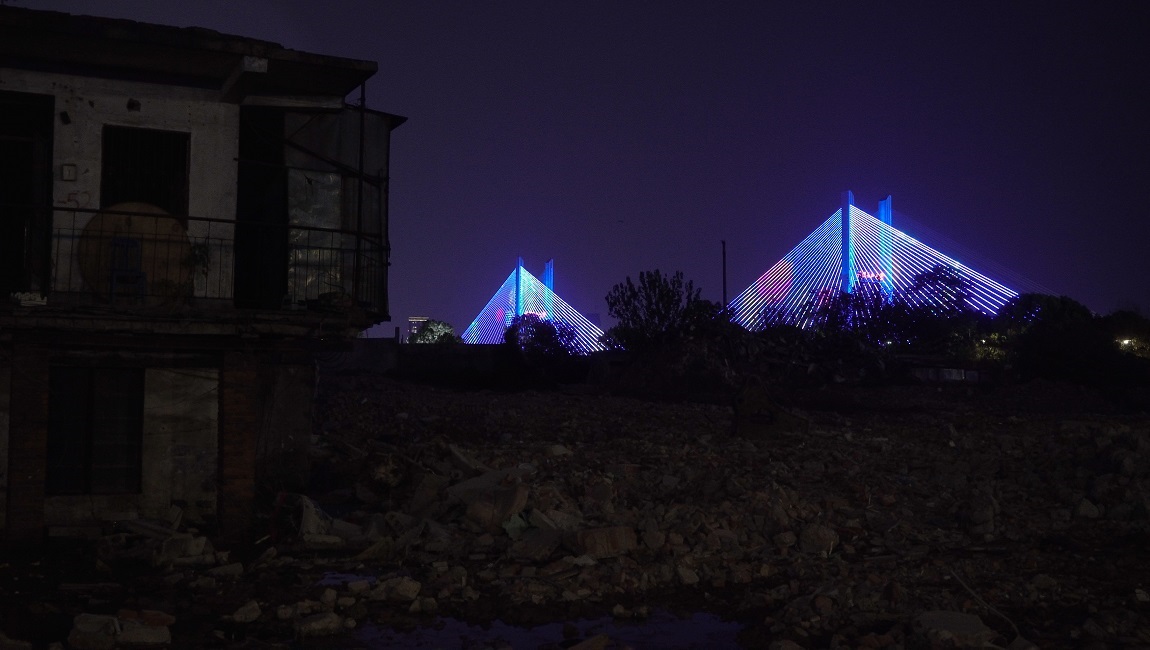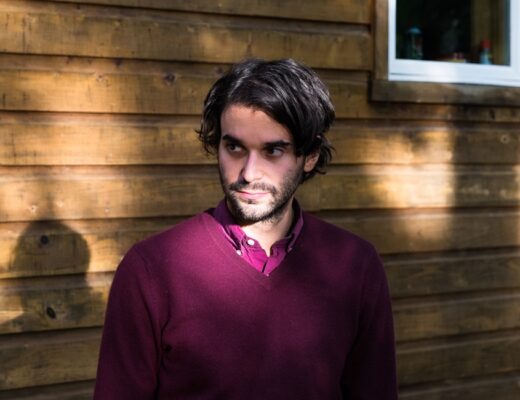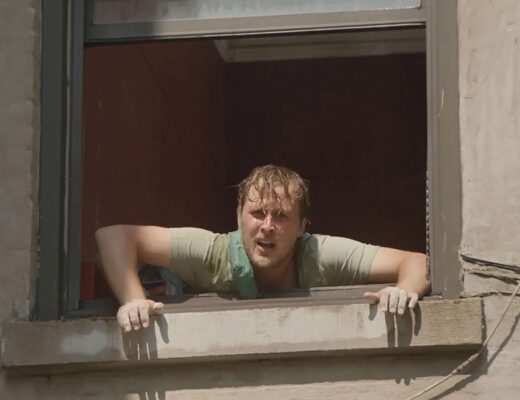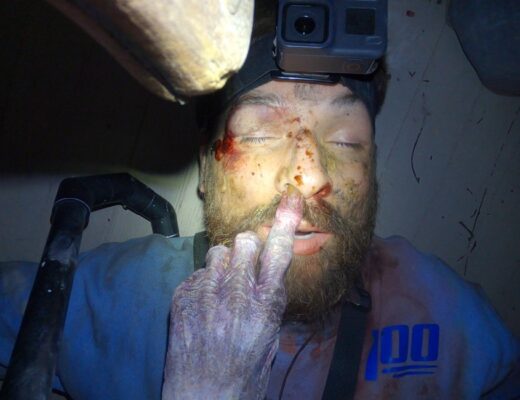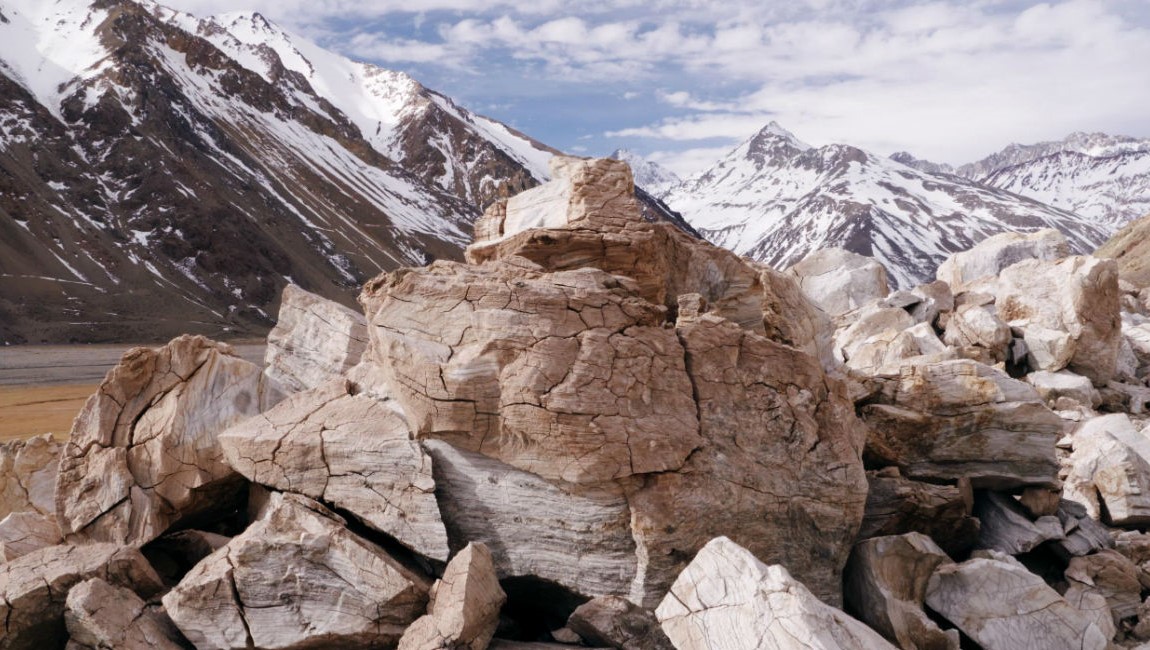At this late stage in the coronavirus pandemic, it’s no surprise that the first of presumably plentiful documentaries devoted to the topic have begun to arrive. These works largely adhere to the common conception of documentary filmmaking as objective, capturing moments and answering questions about how this series of calamities happened. While this can indeed result in incisive and interesting work, it is in no way the only means of engagement, especially with a topic as all-encompassing as COVID-19. To help fill that gap, there is Shengze Zhu’s A River Runs, Turns, Erases, Replaces, which premieres in the Forum section of this year’s Berlin Film Festival. Her last film was the daring and compassionate Present.Perfect., which relied exclusively on footage from various Chinese livestreamers in order to capture new, developing forms of self-expression and connection for the marginalized, and with River Runs, she applies that same precision and rigor to an even more contemporary topic.
Zhu herself is from Wuhan, the Chinese city where coronavirus was first discovered, and where the entirety of River Runs was filmed, but any pretense towards exposé or journalistic explanation are quickly dispelled by the opening sequence, comprised of seven minutes of surveillance camera footage from February 8–April 4, 2020, showing the gradual progression from total lockdown to comparative bustle. This is as close as Zhu comes to showcasing a governmental response to the crisis, and indeed COVID-19 is never even mentioned by name in the film. Instead, the rest of River Runs consists solely of footage shot before the pandemic as part of a proposed installation project, proceeding in largely reverse chronological order from the fall of 2019 to the summer of 2016. Eschewing the dominant close-ups and constant patter of her previous film, Zhu only uses extreme long shots, which contain no dialogue whatsoever, filming numerous locales within Wuhan from afar. She focuses particularly on large-scale construction, towering bridges, and, above all, the Yangtze River, the banks of which flood near the end of the film. With a few exceptions, all of the locations are largely empty, with solitary figures dwarfed in the frame, largely the result of Zhu’s compositions (though social distancing inevitably springs to mind): in one scene, a soccer match can be heard just off-screen, and the players and the ball occasionally intrude at the very bottom of the frame.
Into what might seem like an “objective” mix of cityscapes untethered from the present calamity, River Runs introduces a devastating device, presenting four letters written by Zhu and based on true stories from four grieving people, addressed to a husband, a grandmother, a father, and an older brother, respectively, all of whom died from coronavirus. These letters are presented silently, placing a line of handwritten Chinese characters on-screen one at a time, each detailing the often-mundane sadness with which each person is contending, one that extends into such banal moments as chopping a chicken or swimming in the river. The third letter, in particular, is presented in a different manner, using typed-out characters, and provides such a clear motivation for the documentary’s images — the writer was unaware of her father’s affinity for the very bridges that form such a large bulk of the construction and backdrops here — that it seems quite possible that this might be Zhu’s own story. While this is not the case, it goes some way in detailing the ache of the film, the emotion that infuses the lonely, decaying buildings and desolate shores. Though none of this footage was initially intended as a commentary on the pandemic, River Runs creates an extraordinary poignancy both within and outside of this unexpected context. Zhu understands that, traumatic as it was, coronavirus merely intensified daily struggles, the loneliness and discomfort with which the vast majority of people have been living, and that quarantine mingled with and transformed their conceptions of places and people just out of reach in both space and time. By mapping those melancholy feelings and hazy memories onto the specifics of a city ever in flux, River Runs charts the present state of existence with stunning, heartbreaking clarity.
Published as part of Berlin Film Festival 2021 — Dispatch 2.

